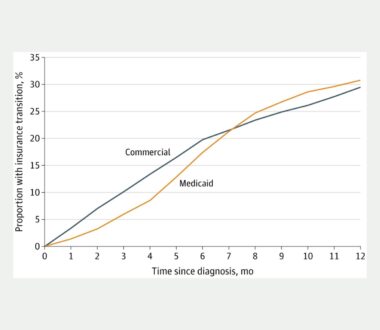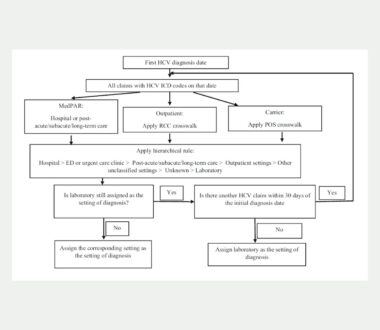
Pilot Grant Analysis Examines Prior Authorization Trends for MOUD in Private Insurance
There is a growing body of research illustrating a movement to remove prior authorization for medications for opioid use disorder (MOUD). Prior authorization requires providers to request approval from an insurer before providing a medication or service. This process is historically enforced for a wide range of medications, including certain MOUD, and has been found […]

CHERISH Pilot Grantee Highlight Low PrEP Use Among Women
The introduction of pre-exposure prophylaxis (PrEP) for HIV prevention has been paramount to reducing HIV transmission and improving the lives of people living with HIV. However, trends in HIV cases and PrEP uptake suggest unaddressed opportunities to reach women and other communities at risk of contracting HIV. Cis-gender women represent 20% of new HIV cases […]

Hepatitis C Virus Screening in Pregnant and Nonpregnant Women After Universal Screening Guidelines
Hepatitis C virus (HCV) testing guidelines were updated in 2020 to provide universal, one-time screening for adults ages 18 through 79 and during each pregnancy. This departure from their 2013 recommendation not only aims to improve early detection of HCV across age groups but also acknowledges pregnancy as a critical period for diagnosing and treating […]

Research Highlights Prevention Efforts in Fentanyl Overdoses
The overwhelming majority of those in New York City who obtained a naloxone kit to counteract opioid overdose had a high need for the drug, according to a new study by Weill Cornell Medicine investigators and the New York City Department of Health and Mental Hygiene. The study, published Jan. 16 in the Journal of Urban Health, […]

Offering Buprenorphine in Homeless Shelters in Massachusetts Projects Life- and Cost-saving Results
Overdose is the leading cause of death among people with opioid use disorder (OUD) who are experiencing homelessness. Innovative care models that meet this population outside of office-based settings can improve access to buprenorphine, a medication for treating OUD, and avert fatal overdoses. In this study, Avik Chatterjee, lead author and addiction specialist at Boston […]

We’re barely using a key resource to help people with addiction
Rachel was making her 25th visit to the emergency department. The wound on her leg from injecting drugs had spread to her entire calf and required a lengthy course of antibiotic treatment in the hospital. The few times she had been admitted to the hospital, she had left without finishing treatment because the pain and […]

Racial and Ethnic Disparities Along the Hepatitis C Care Cascade Among Priority Populations
Over the last two decades, injection opioid use has increased among reproductive-aged women, with resultant increases in mother-to-child hepatitis C virus (HCV) transmissions in the U.S. Direct-acting antiviral (DAA) treatment is highly effective at reducing and eliminating the risk of HCV transmissions. Yet, studies show lower odds of receiving DAA treatment for women compared to […]

Insurance Instability for Patients with Opioid Use Disorder in the Year After Diagnosis
Access to health insurance is crucial to gaining the necessary diagnostic and therapeutic services to achieve and maintain good health. Insurance is especially necessary to access medications for opioid use disorder (MOUD) as the cost of MOUD can be a barrier to staying in treatment. If insurance coverage is disrupted, MOUD treatment may be more […]

Association between claims-based setting of diagnosis and treatment initiation among Medicare patients with Hepatitis C
Direct-acting antivirals (DAAs) have been available since 2015 for hepatitis C (HCV). Nonetheless, very few patients with HCV initiate DAA treatment, ranging from 5% to 30%. The location where a patient is first diagnosed can also influence the care patients receive afterward, especially when a referral to a specialist or coordinated care is needed. In […]

Medicaid-Covered Peer Support Services Used by Enrollees With Opioid Use Disorder
Peer support services (PSS) play an increasingly important role in supporting recovery for people with substance use disorder (SUD). Through these services, peer support workers combine lived experience and professional training to provide health education, encouragement and empathy, recovery modeling, and concrete assistance in overcoming barriers to recovery. As of 2018, 37 Medicaid programs covered PSS for SUD. In a research letter in JAMA Network Open, Dr. Yuhua Bao, professor of population health sciences, and colleagues investigated multi-state utilization of Medicaid-covered PSS in 2019. Researchers found that overall use of Medicaid-covered […]

New Study Reveals Preventable-Suicide Risk Profiles
Individuals with physical health concerns made up the largest and fastest growing of five subgroups of individuals who died by suicide n the United States over roughly twenty years, according to an analysis led by Weill Cornell Medicine in collaboration with Columbia University, UC Berkeley School of Public Health, the University of Hong Kong and […]

Initiation of Hepatitis C Treatment Low Among Medicaid Recipients
While there are highly effective treatments for the hepatitis C virus (HCV), only 1 in 5 Medicaid enrollees diagnosed with HCV started treatment, according to a retrospective study led by researchers at Weill Cornell Medicine and Cornell University’s Ithaca campus. The findings revealed that treatment uptake rates were even lower among people under 30, women, […]
Engage with CHERISH
Submit a Consultation Request or Contact Us to learn more about how CHERISH can support your research or policy goals.